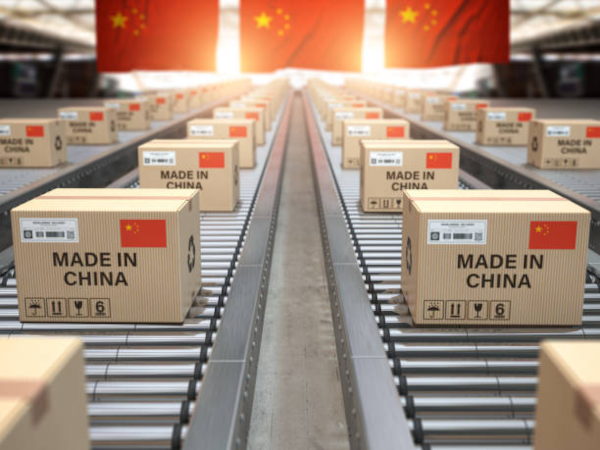Made in China

We don't like to think about it, or perhaps we've never thought to, but from parts to finished products our AV products come largely from China. Yes, there are other players, but China with its cheap labor dominates the AV space.
But, you say, I don't have anything in my system made in China. My loudspeakers and electronics are made in the U.S. of A, or in Canada, Europe, or Japan. While that might be true of many high-end audio products, where do you suppose that even the highest of the high-end companies get their parts the resistors, capacitors, coils, loudspeaker drivers, and other vital pieces they need to build what they sell? And while many of these products are designed here or in Europe or elsewhere in Asia, the means to actually build them are now heavily based in China.
We have, to put it bluntly, retained the ability to create but lost much of the ability to actually build what we conceive. This includes AV products, computers, and (perhaps eventually) cars. While we have the natural resources and design know-how needed to build electric cars, solar panels, and wind turbines, we've decided, for environmental reasons (NIMBY), to farm them out to the most environmentally unfriendly country on the planet. Even the smallest of products are now imported. Ever look at the "made-in" labels on the back of, say, your packet of razors? More than likely it won't say, "Made in" but rather "Distributed by." If it says the latter you can be sure that it's made overseas and the distributor is only too happy to obscure the source, knowing that few buyers will ever look at the fine print.
Even products made outside of China aren't always clearly labeled. Many TVs these days are assembled in plants close to where they'll be marketed. Many of the TVs we receive for review are "Made in Mexico." But that likely means that they were only assembled there. The actual subsystems (the imaging panel, various electronic components, etc.) were made elsewhere and merely shipped to Mexico for final assembly.
But why, you ask, is this even important? Apart from the fact that products not made at home means lost American jobs, there's another critical reason. Have you been following the news lately? China is seriously rattling its sabers over Taiwan. We all hope it will come to nothing and settle down, but what if China chooses to grab back, by force, what it claims to be its own? Or sinks one of our aircraft carriers in the process? Could we, or would we, declare a total embargo of everything from China, and/or slap a crushing tariff on Chinese products, perhaps even including everything already on our store shelves?
While such a ban or embargo would be catastrophic for China's economy (hopefully the likelihood of that is already part of China's "do we or don't we" equation), their citizens are so tightly controlled that they could do little about it. But it would be similarly destructive to our own economy. Even without a tariff on Chinese AV products already on the shelves, their prices would either skyrocket or the shelves would soon be emptied. In that event, buy that new TV, AV receiver, or computer immediately or wait indefinitely.
Also hope that you don't need antibiotics or penicillin; two-thirds of these medical products, or their key ingredients, are imported from China. Need a shave? Grow a beard! Would we seize China assets here, or might China do the same to our assets in China? Many American, Canadian, Japanese, Korean, or European companies (such as Apple, Tesla, and Shanghai Disneyland) have their own factories, or other properties, in China. But their claims would be meaningless in the event of hostilities.
In no past conflict has so much trade linkage between possible adversaries. Think back to the recent Covid situation. Cargo ships glutted our harbors as dock workers stayed home. Later, ships were seldom full, as many Chinese factories were shuttered. The only thing that kept a lid on was the reluctance of consumers to buy (though TVs sales did thrive while folks huddled at home, wearing masks and watching old movies and cat videos!).
If such an event ever came to pass, how long after it was resolved before we felt comfortable enough to restore the current trade situation? Would we still be driven to revive our moribund home manufacturing base? How long would that take, and how would it affect the prices we've become accustomed to over years of relying on cheap Asian labor. But that situation might resolve itself as manufacturers, now based in China, move their plants elsewhere, to places such as Vietnam, Indonesia, or India. Even today, Chinese labor has become far pricier than it was decades ago when foreign investors first decided to set up shop there.





























































